- BlackVoter.Org
- Posts
- BlackVoter.Org
BlackVoter.Org

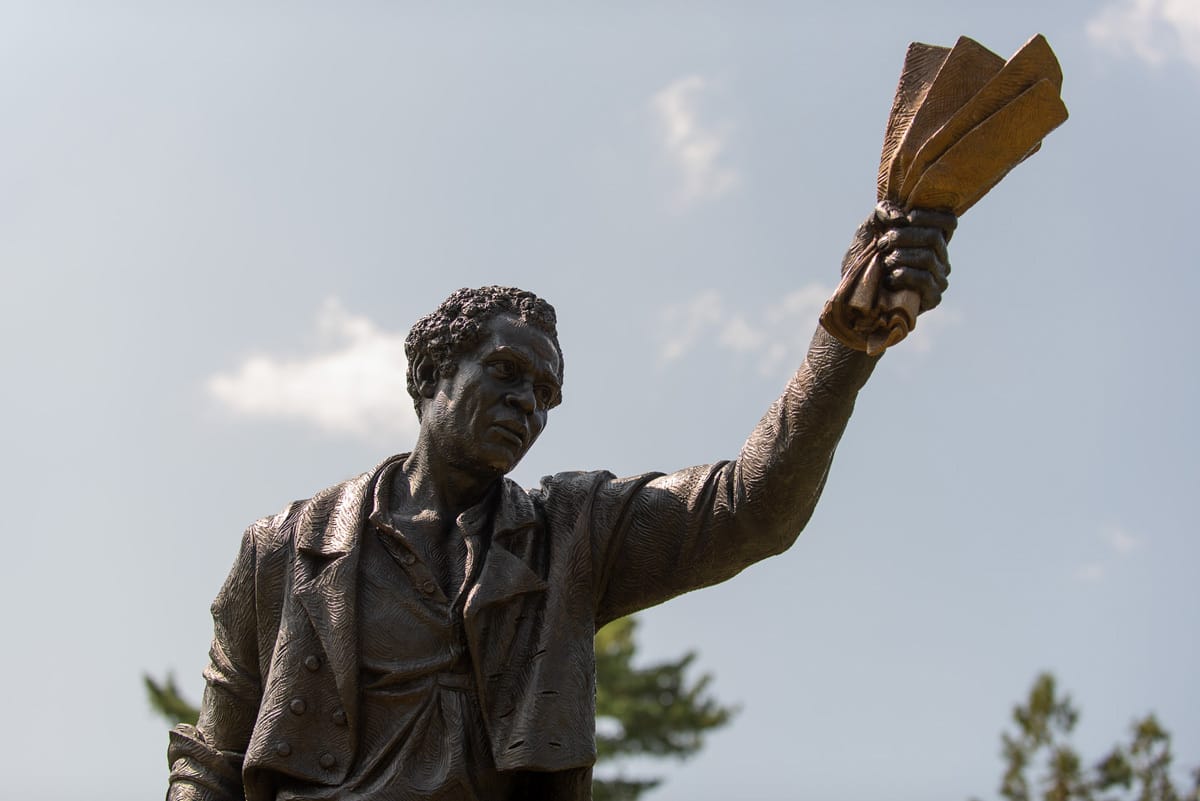
A stunning bronze statue of Solomon Northup was unveiled at Saratoga Spa State Park, celebrating the legacy of the Saratoga Springs resident and author of "Twelve Years a Slave." Standing 13 feet tall, titled "Hope Out of Darkness," the statue will be on display in front of the Lincoln Bathhouse until October 7, 2025, before finding a permanent home in Marksville, Louisiana, where he was emancipated.
The unveiling ceremony was marked by reflections on Northup's harrowing journey from free man to enslaved victim and back again, emphasizing the importance of acknowledging New York's complex history with slavery. The statue, created by Emmy-winning sculptor Wesley Wofford, symbolizes Northup's resilience, featuring elements like upraised papers representing his battle for freedom.
This commemorative display is part of New York's broader initiative to explore and educate about the state’s history of enslavement as we approach the bicentennial of the abolition of slavery in New York in 2027.
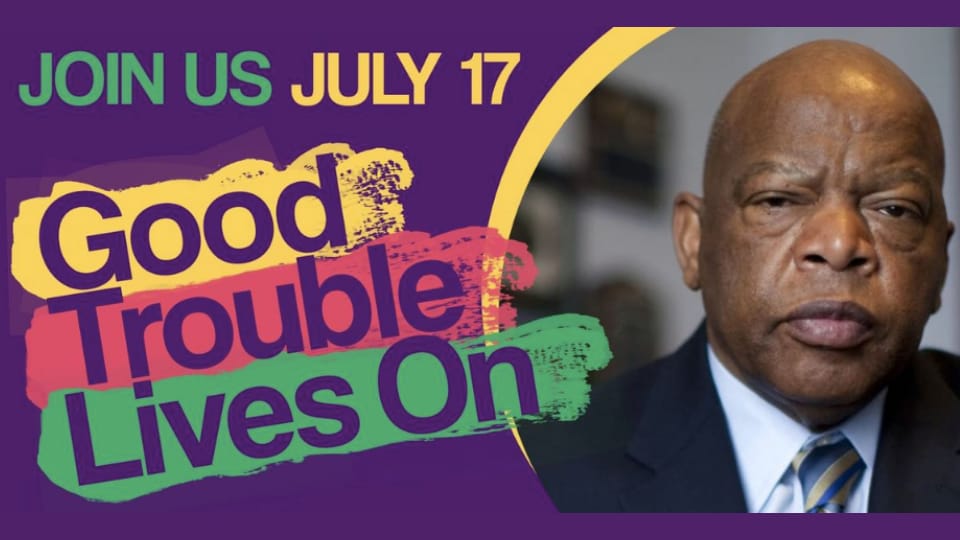
On July 17, in a powerful tribute to the late civil rights legend John Lewis, over 1,600 cities across the U.S.
will come alive with marches and events advocating for civil rights, voting rights, and economic justice. Major gatherings in cities like Chicago and Atlanta will serve as launching points for this nationwide movement, extending as far as Oaxaca, Mexico.
As tens of thousands gather, they’ll celebrate Lewis’s legacy and rally against contemporary threats to voting rights, echoing his famous call to “get in good trouble.” The day will culminate in nationally televised candlelight vigils and discussions, emphasizing the ongoing fight against discriminatory policies that echo Jim Crow laws.
With themes of unity and resilience, activists fervently aim to reignite the spirit of activism Lewis embodied, calling for systemic changes and the restoration of protections against voter suppression. This nationwide day of action promises to inspire and mobilize a diverse coalition for change.
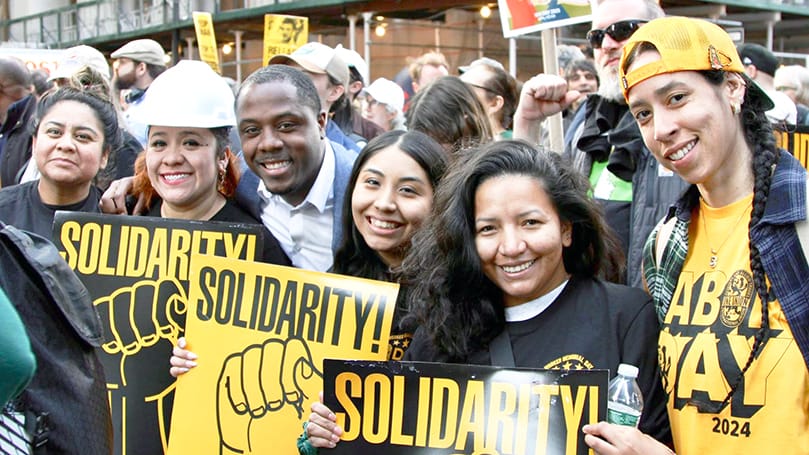
In a stirring keynote, Joe Sims, co-chair of the Communist Party USA, champions “Resistance 2.0” amid a political landscape transformed since February.
The anti-MAGA movement has regained momentum, stepping up from scattered protests to a vibrant national movement, highlighted by influential initiatives like the Hands Off demonstrations and May Day events. The resounding election of democratic socialist Mamdani as NYC mayor marks a pivotal shift towards a multi-racial, working-class alliance, essential for combating the far-right agenda.
Sims emphasizes the crucial role of labor in this struggle, arguing that a united front, including Black, Latino, and Asian workers, is vital for effective opposition. As challenges like rising fascism loom large, the call for solidarity and grassroots collaboration rings clear.
Looking ahead to the midterms, he urges active participation and building an independent electoral force as part of a broader movement for social justice, equality, and peace.
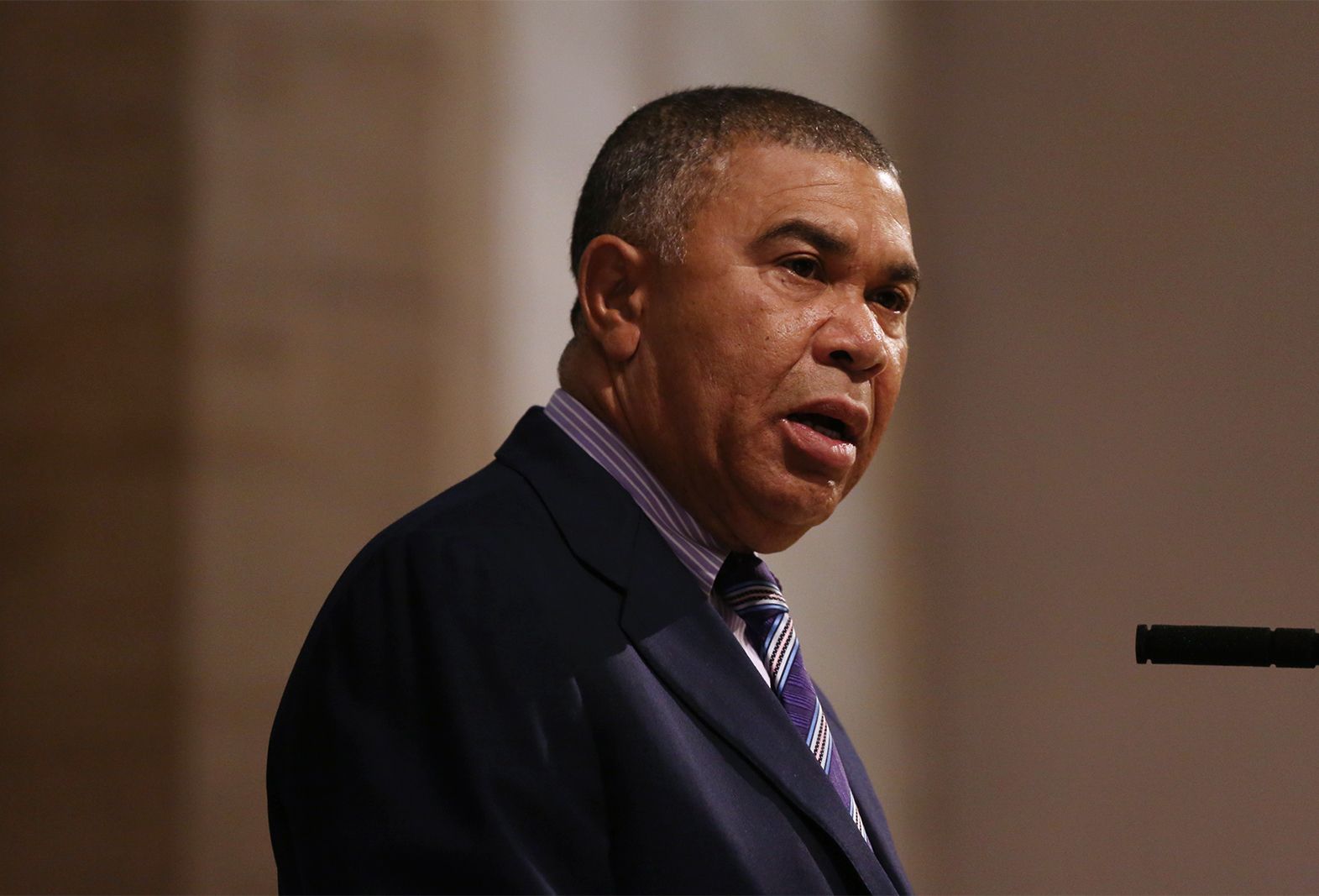
William Lacy Clay Sr., Missouri’s first Black congressman and a tireless advocate for civil rights and workers' rights, has passed away at the age of 94.
His remarkable 32-year tenure in Congress began in 1969, where he became a powerful voice for the marginalized, influencing significant social and political changes in St. Louis and beyond.
An early fighter against local segregation, Clay played crucial roles in desegregating public spaces and opening employment opportunities for African Americans. His career, marked by passionate advocacy and bold statements, saw him sponsor nearly 300 impactful bills, many focused on civil rights and labor laws.
Clay's legacy is felt not just in legislation but in the lives he helped uplift, with numerous institutions and awards in his honor. Survived by his three children, he leaves behind a powerful legacy of tenacity, courage, and dedication to equality and justice.
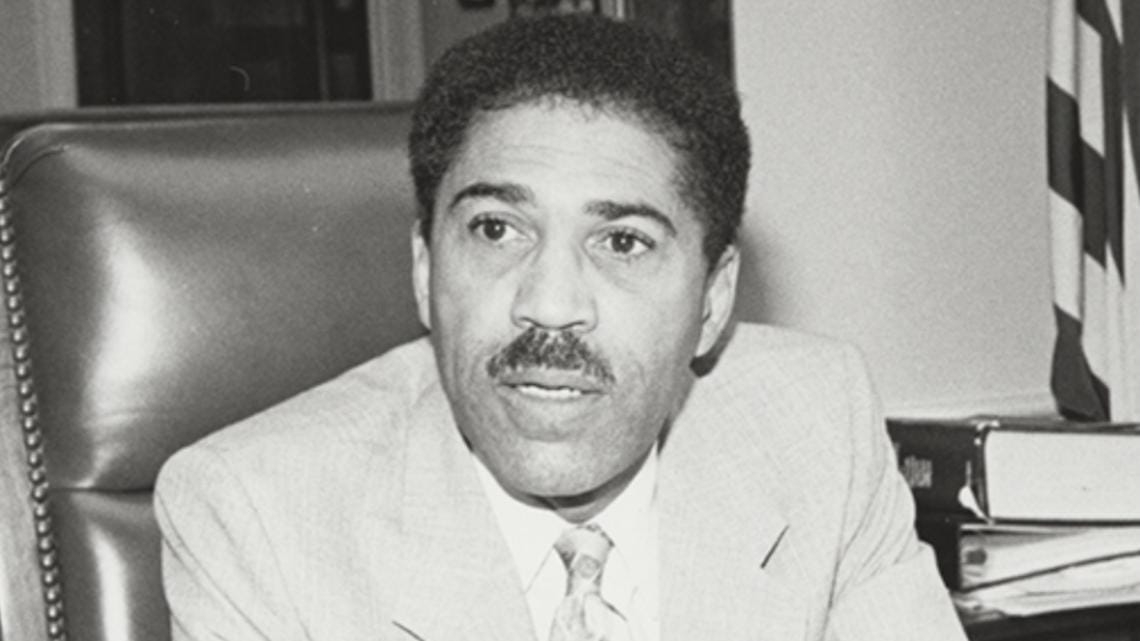
William "Bill" Clay Sr., Missouri's first Black congressman and a pivotal figure in the civil rights movement, has passed away at the age of 94.
Serving for over 30 years, Clay was instrumental in the establishment of the Congressional Black Caucus and championed the rights of working-class Americans. His early activism was ignited during his military service, where he faced racial discrimination, leading him to organize protests upon his return to St.
Louis. Notably, he was a leader in the historic Jefferson Bank Protests of 1963, which aimed to increase Black employment in the banking industry.
Clay’s legacy continued through his son, Lacy Clay, who carried on his father's commitment to public service. State Senator Brian Williams honored Clay as a "civil rights icon” whose courage and dedication transformed the landscape of American politics, inspiring countless others in the fight for justice.
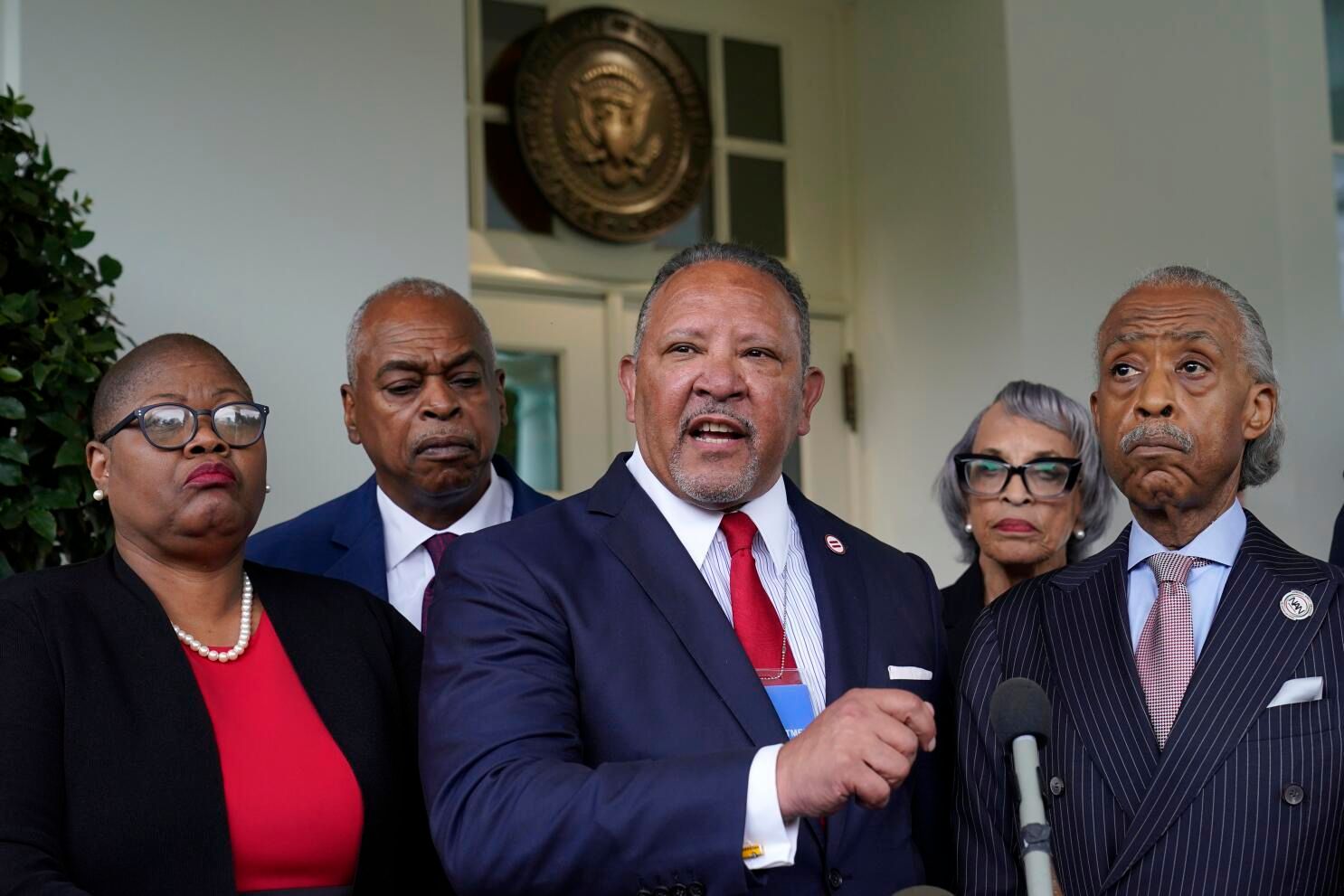
The National Urban League has declared a "state of emergency" for civil rights in the United States, citing alarming actions by the Trump administration that threaten anti-discrimination efforts, personal freedoms, and Black economic advancement. According to their latest report, the federal government is seen as compromising fundamental principles, promoting a narrow and exclusionary framework that could undo decades of progress.
Marc Morial, the league’s president, condemned what he termed a coordinated, well-funded campaign to normalize white supremacist politics within the Republican Party. The report also criticizes major corporations and social media platforms for rolling back diversity and inclusion policies, and it calls for the formation of a "new resistance" to combat these changes.
As civil rights advocates rally, they emphasize the need to educate the public on the importance of preserving hard-fought rights amid a political landscape increasingly hostile to diversity and equity initiatives.
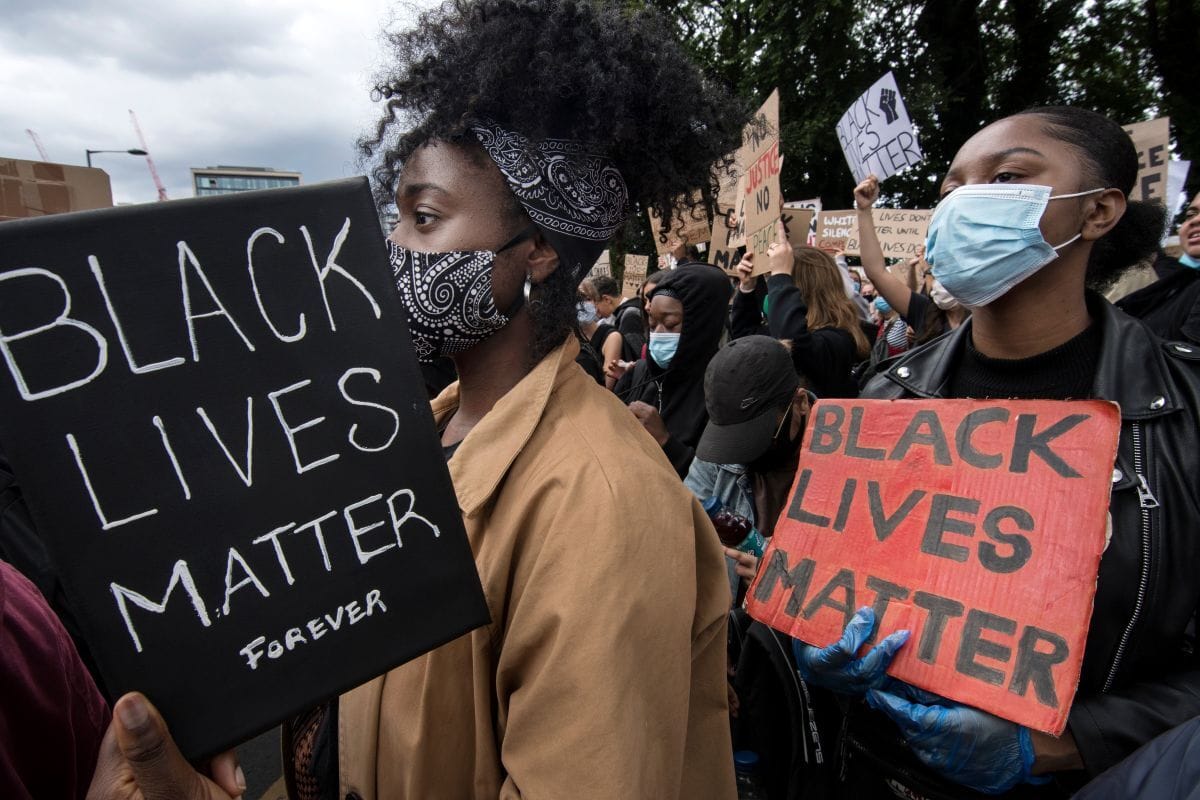
The article “Change and Continuity in Black Freedom Struggles” dives into the complexities of the Black Lives Matter movement, shedding light on its profound significance in combating police violence and systemic racism. Contributing authors, including Françoise N.
Hamlin and Charles W. McKinney Jr.
, offer a multi-dimensional exploration of contemporary struggles for justice, highlighting the intersections of gender, activism, and cultural critique. This collaborative examination weaves historical threads from the civil rights era to today’s protests, illustrating how various societal tensions shape the ongoing fight for equality.
The essays not only reflect on past milestones but also challenge readers to engage with the urgent present circumstances and the lasting impacts of Black freedom struggles. By asserting that “Our lives matter,” the movement encapsulates a universal plea for dignity and humanity, calling for reflection and action in the face of enduring inequities.